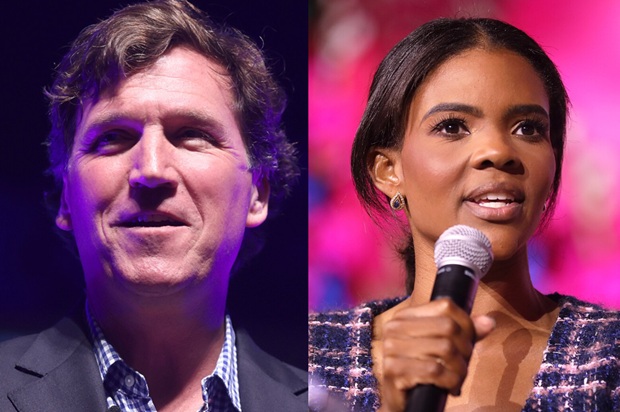
Tucker Carlson, Candace Owens Are Rewriting the Conservative Map
For the first time since the Reagan era, the conservative movement is undergoing a structural realignment not simply of policies but of purpose. The fight now unfolding between Tucker Carlson’s populist-nationalist bloc and the last defenders of the neoconservative establishment is not about personalities — it is about sovereignty, authenticity, and the right to define what “the Right” even means in the 21st century.
The End of the Neocon Era
The neoconservative project was born in the Cold War and sustained through the illusion of unipolar American power. It built a worldview around permanent intervention, managed democracy, and a revolving door between think tanks and bureaucracy. Its acolytes, from the Heritage Foundation to Washington’s foreign policy class, grew accustomed to being the unchallenged priesthood of “respectable” conservatism.
That order is collapsing. The base no longer believes in foreign wars, globalism, or moralizing technocracy. They have seen the results — deindustrialization, open borders, and the hollowing of national identity. The very language of “spreading freedom abroad” rings hollow when freedom and meaning are eroding at home.
The Populist Counter-Revolution
Enter Tucker Carlson, Candace Owens, and a generation of populist commentators who have tapped into something the Beltway elite cannot manufacture: genuine moral conviction. Carlson has become more than a media figure; he represents a rebellion of the intuitive over the institutional. Owens speaks to a cultural awakening among younger conservatives who see that family, faith, and national loyalty are not relics — they are the prerequisites of civilization.
Nick Fuentes, though far more controversial, embodies the same generational instinct to reclaim meaning from managerial politics. His appeal to young men alienated by both neoliberalism and progressivism speaks to an uncomfortable truth for the establishment: the next wave of conservatives will not apologize for wanting order, purpose, and identity.
Why the Neo-Cons Are Losing
The neoconservatives still hold the infrastructure — donors, white papers, and policy briefings — but they have lost the cultural imagination. Their rhetoric of “leadership” sounds bureaucratic, their appeals to patriotism feel outsourced. In the social and digital sphere, Carlson and Owens dominate the terrain of moral language, humor, and instinct. The cultural war is fought through symbols and emotion, not position papers.
The neocon elite has retreated into technocratic pessimism, hoping to survive through inertia. But the moral center of the Right has shifted — from Washington to the cultural margins, from Fox’s boardroom to Tucker’s independent platform, from scripted “talking points” to unfiltered conviction.
The New Ideological Synthesis
What’s emerging is a synthesis of nationalism, traditionalism, and anti-globalism that transcends the old left-right binary. It values economic sovereignty over GDP metrics, moral order over consumer freedom, and community over corporate cosmopolitanism. It is neither libertarian nor imperial — it is grounded, rooted, and unashamedly human.
The new conservative vision sees that politics is not a game of management but of meaning. In that sense, the populist Right’s rise is not reactionary but restorative — a return to first principles in an age that has forgotten them.
Conclusion: The Future Belongs to Those Who Believe
The neoconservatives built a machine. The populists built a movement. And movements, not machines, win history’s long wars.
Carlson, Owens, and their allies are winning not because they have the most money or institutional prestige, but because they speak with faith — faith in family, in nation, and in the moral right of a people to govern themselves.
The era of managed conservatism is ending. The age of conviction has just begun.

